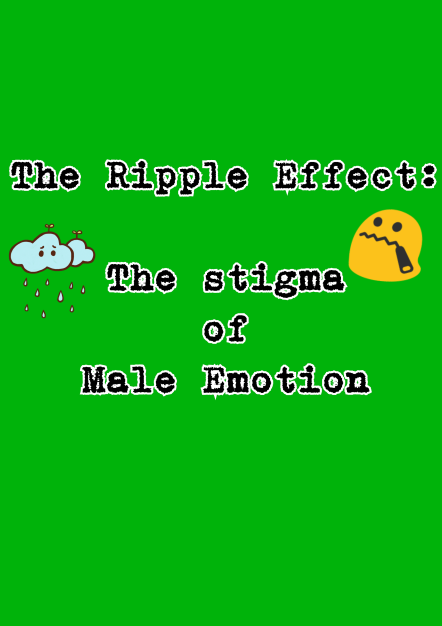We have all heard the phrases used to encourage men to play their ‘gender role’ and supress the emotions that come naturally to them.
“Big Boys Don’t Cry”, “Grow a pair”, “Man up”. These words are designed to make them feel guilty for expressing themselves, or talking about their emotions – letting them believe that it is not Ok to cry, that it is not Ok to not be Ok.
What about the words that aren’t said? What about the role models a boy has – that set the example for the rest of his life and shapes the attitudes and beliefs he will carry with him into adulthood?
While some current generations may have learnt to evolve and not keep spewing these clichés towards their children, what they don’t say can still have an impact. Learned behaviours that our own parents picked up from their parents may impact the behaviours they display that their sons pick up on.
In addition to not telling males “toughen up” or “don’t be such a girl”, we need to ensure we encourage the positive ways of expressing emotion and letting them know that actually it is ok to not be ok. We need to let them know that if they open up then they do so as a human being, not with judgement based on gender. Every person deserves to be able to express themselves.
Having the stigma that male emotion cannot be expressed can impact not just the individual, but those around him too. In addition to him having his own role models, he may be a role model himself.

At 9 years old, I remember playing in my brother’s room when my parents came in to talk to my brother and me. A close family member had been very poorly, and our lives at that point had been heavily impacted by that, so it was no great surprise when they came in to talk about it with us.
My mum and dad explained that the family member wasn’t going to get better. That a tumour in the brain was what was causing them to be ill and that the Doctors weren’t able to do anything for them. At the age of 9, trying to wrap your head around cancer and the destruction it causes to the sufferer is not an easy thing. I think I understood. This meant death was inevitable if there was no way to get better? Cancer was a new concept to me, but death was not.
I felt the emotions rising because this meant death was coming, but who knew when? Mum was so strong telling us, dad stood there supporting her and helping her explain, being the rock she needed while she brought us into the picture. I looked to my teenage brother to see how he was taking this all in. I could feel my emotion building so surely his was too? He looked at my parents and nodded in acceptance, acknowledging that he understood. There were no tears, no waiver in his voice. Maybe I had got this wrong? Maybe I misunderstood? Maybe it meant she couldn’t get better for a while, or maybe she couldn’t get better but she wouldn’t get worse? The emotions I felt worrying that death was around the corner began to sink back down. I had clearly gotten this wrong because my brother would have been upset too over this surely? My parents left the room, and my brother quietly returned to what he was doing.
We all know where this story goes, I hadn’t got it wrong. Cancer took its toll in a short space of time.
After over 20 years, I still remember the effect that suppressing emotion had on my brother, and on my own understandings of life. Not only is expressing emotions healthy, but it is one of many forms of communication between people. Had he shown how he felt in that moment, I may have shared that moment more with him, instead we dealt with it internally, alone.
This reaction I can only attribute to the male role models around him. I certainly don’t remember him ever being told to ‘man up’ or told not to cry, but I also don’t remember seeing my dad cry.
In the 90’s we were not as self aware as we are now, so acting in this way, leading by this example was the norm.
With male suicides so high, and with mental health now being talked about more than ever, it is so important to keep conversations going. We need to end the stigma, not just of talking about mental health, but talking about emotions in general, regardless of age, gender identification, race, sexuality etc.
Don’t just avoid the phrases, encourage conversations. Let everyone know that it is ok to not be ok.
In some ways it is a stigma – but I think the social messages \big boys don’t cry’ etc etc is the message from a society that doesn’t care.
Role models I have always found interesting/ More would be gained by reflecting on why we need them – as that need is overall destructive in lots of ways.
LikeLike
The scenario with your dad and brother is so typical of the generation ppl our age grew up in and every generation before it. That’s why encouragement to show your feelings especially with males is so essential even at a young age to end the stigma and lower the male suicide rate. As always, great post.
LikeLiked by 1 person
Thanks Sam!! You are always so supportive and your support is always appreciated so much!!
LikeLike